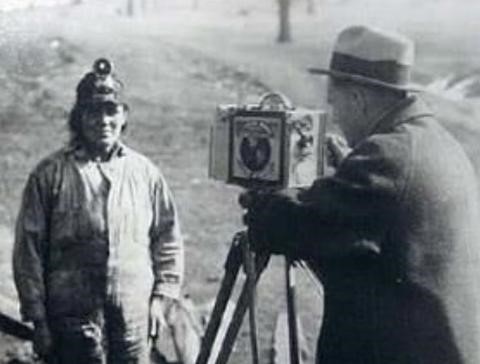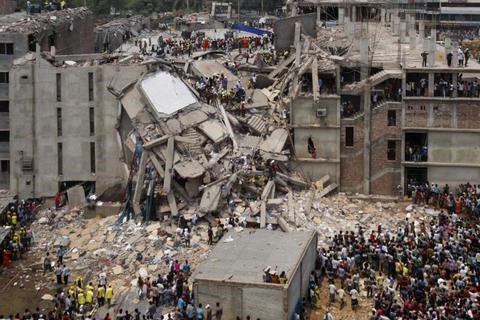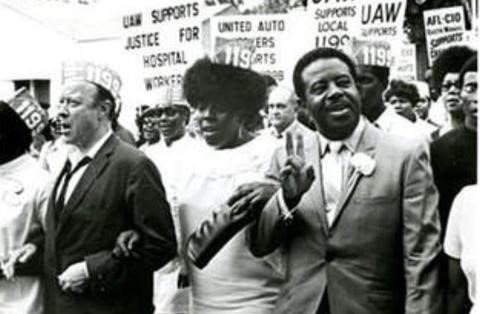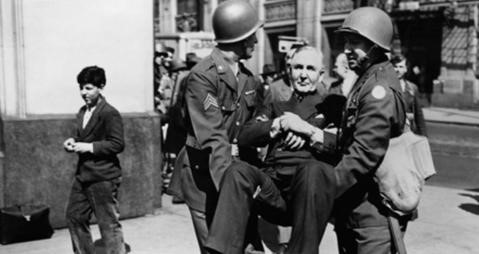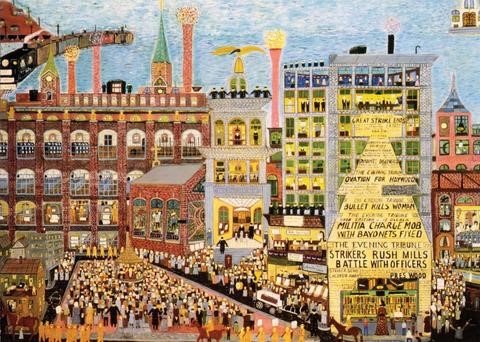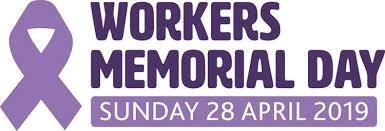April 22
Songwriter, musician and activist Hazel Dickens dies at age 75. Among her songs: “They’ll Never Keep Us Down” and “Working Girl Blues.” Cultural blogger John Pietaro: “Dickens didn’t just sing the anthems of labor, she lived them. Her place on many a picket line, staring down gunfire and goon squads, embedded her into the cause” – 2011
April 23
The Canadian Labour Congress (CLC) is founded through a merger of the Trades and Labour Congress of Canada (TLC) and the Canadian Congress of Labour (CCL), the two major union congresses in Canada at the time. The CLC represents the interests of more than three million affiliated workers – 1956
Death of Ida Mae Stull, nationally recognized as the country’s first woman coal miner – 1980
United Farm Workers of America founder Cesar Chavez dies in San Luis, Ariz., at age 66 – 1993
April 24
The Int’l Longshoremen’s and Warehousemen’s Union halts shipping on the West Coast in solidarity with Mumia Abu-Jamal, a Philadelphia journalist who many believed was on death row because he was an outspoken African-American – 1999
An eight-story building housing garment factories in Dhaka, Bangladesh collapses, killing 1,129 workers and injuring 2,515. A day earlier cracks had been found in the structure, but factory officials, who had contracts with Benneton and other major U.S. labels, insisted the workers return to the job the next day – 2013
April 25
The New York Times declares the struggle for an 8-hour workday to be “un-American” and calls public demonstrations for the shorter hours “labor disturbances brought about by foreigners.” Other publications declare that an eight-hour workday would bring about “loafing and gambling, rioting, debauchery and drunkenness” – 1886
IWW Marine Transport Workers begin West Coast strike – 1923
The Reverend Ralph David Abernathy and 100 others are arrested while picketing a Charleston, S.C., hospital in a demand for union recognition – 1969
Supreme Court rules that employers may not require female employees to make larger contributions to pension plans in order to obtain the same monthly benefits as men – 1978
April 26
The U.S. House of Representatives passes House Joint Resolution No. 184, a constitutional amendment to prohibit the labor of persons under 18 years of age. The Senate approved the measure a few weeks later, but it was never ratified by the states and is still technically pending – 1924
On the orders of President Roosevelt, the U.S. Army seizes the Chicago headquarters of the unionized Montgomery Ward & Co. after management defies the National Labor Relations Board – 1944
April 27
First strike for 10-hour day, by Boston carpenters – 1825
James Oppenheim’s poem “Bread and Roses” published in IWW newspaper Industrial Solidarity – 1911
President Dwight Eisenhower signs Executive Order 10450: Security Requirements for Government Employment. The order listed “sexual perversion” as a condition for firing a federal employee and for denying employment to potential applicants – 1953
A cooling tower for a power plant under construction in Willow Island, West Virginia collapses, killing 51 construction workers in what is thought to be the largest construction accident in U.S. history. OSHA cited contractors for 20 violations, including failures to field test concrete. The cases were settled for $85,000—about $1,700 per worker killed – 1978
April 28
Coal mine collapses at Eccles, W.Va., killing 181 workers – 1914
A total of 119 die in Benwood, W.Va., coal mine disaster – 1924
United Wallpaper Craftsmen & Workers of North America merges with Pulp, Sulfite & Paper Mill Workers – 1958
American Federation of Hosiery Workers merges with Textile Workers Union of America – 1965
Congress creates OSHA, the Occupational Safety and Health Administration. The AFL-CIO sets April 28 as “Workers Memorial Day” to honor all workers killed or injured on the job every year – 1971
First “Take Our Daughters to Work Day,” promoted by the Ms. Foundation, to boost self-esteem of girls with invitations to a parent’s workplace – 1993
-Compiled and edited by David Prosten.

